

ISSUE 74 | OCTOBER 2022 The P2P Power 50 2022 The most influential people in the UK’s peer-to-peer lending sector RISING STAR P2P Power 50 2022 FIRM OF INFLUENCE P2P Power 50 2022 most influential people in P2P 2022 THE

Peer2Peer Finance News is holding the inaugural Peer2Peer Finance Awards on Tuesday 6 December 2022 at the prestigious Hurlingham Club in London. The awards will recognise the most influential peer-to-peer lending platforms, as well as the best professional services firms and technology providers supporting the sector. Nominations have now closed, and the shortlists are set to be released. For more information on table sales, please email Peer2Peer Finance News’ sales and marketing manager Tehmeena Khan at tehmeena@p2pfinancenews.co.uk .
Published by Royal Crescent Publishing
Green Park House, 15 Stratton St, Mayfair, London W1J 8LQ info@royalcrescentpublishing.co.uk

EDITORIAL
Suzie Neuwirth
Editor-in-Chief suzie@p2pfinancenews.co.uk
Kathryn Gaw Contributing Editor kathryn@p2pfinancenews.co.uk
Marc Shoffman
Senior Reporter marc@p2pfinancenews.co.uk
Hannah Gannage-Stewart Reporter

PRODUCTION Tim Parker Art Director
COMMERCIAL Tehmeena Khan Sales and Marketing Manager tehmeena@p2pfinancenews.co.uk
SUBSCRIPTIONS AND DISTRIBUTION tehmeena@p2pfinancenews.co.uk
Find our website at www.p2pfinancenews.co.uk
Printed by 4-Print Limited ©No part of this publication may be reproduced without written permission from the publishers.
Nominations
have now closed for the inaugural Peer2Peer Finance Awards, with the shortlists set to be announced imminently.
I’m excited to unveil the contenders and, in two months’ time, the winners at the awards ceremony on Tuesday 6 December at London’s Hurlingham Club, thanks to the help of our expert panel of judges (more of which on page 5).
The peer-to-peer lending industry has evolved considerably in recent years and it’s great to see such an inspiring and successful array of companies showcased in the nominations.
Unfortunately, not every nomination was able to make the shortlist, but I’d like to thank everyone who applied and highlight the high standard of entries.
To those of you who did make the shortlist – well done and good luck!
SUZIE NEUWIRTH EDITOR-IN-CHIEF
Peer2Peer Finance News has been prepared solely for informational purposes, and is not a solicitation of an offer to buy or sell any peer-to-peer finance product, or any other security, product, service or investment. This publication does not purport to contain all relevant information which you may need to take into account before making a decision on any finance or investment matter. The opinions expressed in this publication do not constitute investment advice and independent advice should be sought where appropriate. Neither the information in this publication, nor any opinion contained in this publication constitutes a solicitation or offer to provide any investment advice or service. hope you’re enjoying the latest edition of Peer2Peer Finance News! We have now moved to a paid-for subscription model. If you would like to continue reading the magazine, please go to www.p2pfinancenews. co.uk/subscribe/ to find out about subscription options.
03EDITOR’S LETTER
We
RateSetter acquisition “conceived in extraordinary times”
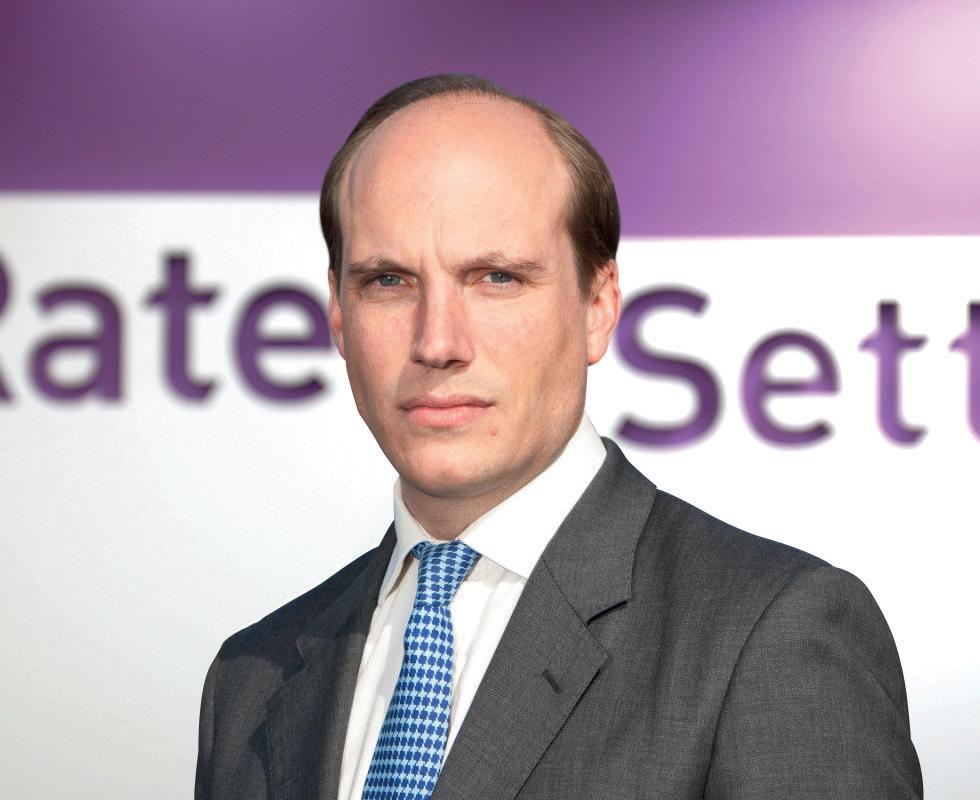
RATESETTER’S acquisition by Metro Bank was “conceived in extraordinary times”, the platform’s chief executive Rhydian Lewis has said.
Speaking exclusively to Peer2Peer Finance News, Lewis (pictured) recalled the uncertainty of the first lockdown of the Covid-19 pandemic, revealing that the former peer-to-peer lending platform was on the cusp of a pre-initial public offering fundraise when the pandemic hit.
“Timing matters in life and I think that RateSetter was somewhat unfortunate in this perfect storm by virtue of its plans,” Lewis said. “The
funding of the business; the planning to raise money ahead of a listing – which had always been the plan – coincided almost to the day of the first lockdown.”
As a result, RateSetter’s priority shifted as the platform sought to protect its borrowers and investors to ensure that none of its customers lost any of their money.
“It was a complex period,” added Lewis. “We acted in the interests of customers and stakeholders. And since then, since September 2020, it's gone very well.”
Metro Bank completed its acquisition of RateSetter in September 2020. Lewis is now head of consumer lending at Metro Bank, and RateSetter recently achieved profitability for the first time during its first year as a Metro Bank brand.
Look out for our full interview with Lewis and an in-depth look at the RateSetter acquisition in the November issue of Peer2Peer Finance News.
Diversification key in protecting your portfolio from inflation
PORTFOLIO
diversification can help investors beat the impact of rising inflation, with peer-to-peer lending allocations set to become increasingly valuable.
Inflation reached a 40-year high of 10 per cent in July 2022, before falling slightly to 9.9 per cent in August. However, some analysts have predicted that the rate of inflation could reach as high as 22 per cent by the end of the year, as rising energy prices, supply shortages and the cost of living take their toll.
Meanwhile, cash savings account rates have rallied to around three per cent over the past few months. While this represents a yearslong high, these savings rates still fall far short of the rate of inflation.
In order to protect your savings and investments from erosion due to the rising cost of living, portfolio diversification is essential.
This means reviewing your existing portfolio of savings and investments, and making a few changes in line with
the current economic climate. Conservative investors may choose to take on a little more risk in order to boost their overall returns. This could mean making space for a new asset class such as P2P lending or cryptocurrency, alongside existing investments in bonds, equities and cash.
P2P lending has a proven track record of being able to deliver inflation-beating returns even during periods of economic uncertainty.
Earlier this year,
exclusive data from Peer2Peer Finance News found that Innovative Finance ISAs – the tax wrapper for P2P investments – have returned between 7.8 and nine per cent per annum over the past four years, even after any defaults and other losses have been considered. This suggests that P2P investments could play a stabilising role in a diversified investment portfolio, offering higher returns than cash savings and less volatility than the stock market.
NEWS04
Peer2Peer Finance Awards judging panel revealed
THE JUDGING panel for the forthcoming Peer2Peer Finance Awards has been revealed.
Former RateSetter boss Rhydian Lewis, Innovate Finance chief executive Janine Hirt (pictured) and Neil Faulkner, chief executive and head of research at 4th Way, will assess the nominations for each award category, whittling down the contenders into a series of shortlists before choosing an overall winner.
The winners will be announced on Tuesday 6 December at London’s Hurlingham Club.
All three judges were chosen for their indepth knowledge of the UK’s P2P lending sector, from a variety of
different perspectives.
Lewis is a P2P veteran who co-founded RateSetter in 2010, before growing it into one of the top three lending platforms in the UK.
In 2020, RateSetter was acquired by Metro Bank in a deal worth £12m, and since then the RateSetter brand has reached profitability for the first time while growing its loanbook to more than £1bn.
Lewis is now managing director of consumer finance at Metro Bank, where he oversees the challenger bank’s entire consumer lending business.
Lewis said that as an independent judge for the Peer2Peer Finance
Awards, he is most looking forward to seeing how P2P has developed in the two years since RateSetter left the sector.
Janine Hirt is a fintech expert who has been a champion of P2P lending over the years.

In her role as chief executive of Innovate Finance, she has lobbied the government on behalf
Relendex sets green loans goal
RELENDEX is targeting 60 per cent of its new loans to be for sustainable development by the end of next year.
Paul Sonabend, executive chairman of the peer-to-peer property lending platform, said the company’s green credentials should appeal to retail and institutional investors alike, amid the growing environmental, social and governance (ESG) investing trend.
“In 2021, 30 per cent
of all fintech lenders and spoken out about the stringent new P2P regulations which have been introduced over the past few years.
She told Peer2Peer Finance News that this is the right time to celebrate P2P lending, and “to commend all these inspiring changemakers” in the sector.
Meanwhile, Faulkner has maintained a birdseye view of the P2P sector through his work at ratings and analysis firm 4th Way.
Since 2014, 4th Way has tracked the performance of the UK’s P2P lending platforms, assigning ratings based on their risk modelling, expertise, customer care and track record.
of the money we lent went into developments that were sustainable from cradle to grave,” Sonabend told Peer2Peer Finance News
“To qualify as a ‘green’ loan, every part of the building process has to be seen to be sustainable. We are working with the most innovative housebuilders who are building the most wonderful housing stock that costs little or nothing to light and heat.
“Our goal is for 60 per
cent of new loans to be for sustainable development by the end of 2023 and we want the market to know that we are not scared of financing innovative, sustainable buildings using new techniques. We see ourselves as part of a much larger eco-environment in an industry that has not always been green.”
Sonabend noted that there are many institutions who want to deploy ESG funds but are scared
of greenwashing. This is when firms pretend they are doing more to protect the environment than they really are.
“[Our sustainable development loans] should appeal to large numbers of retail investors who are sophisticated enough to qualify to be our lenders,” Sonabend said.
“Our appeal is for institutions who understand they have a bigger purpose in life than just getting a return.”
Go to page 20 to read our full interview with Sonabend.
05NEWS


Kuflink reveals the secret to customer retention
IT IS FAMOUSLY EASIER to retain an existing customer than to attract a new one, but in the competitive peer-topeer lending landscape, customer retention can be challenging.
However, for Kuflink’s chief executive, Narinder Khattoare (pictured), the secret to keeping his customers happy is very simple. He listens to them.

“In January or February of each year I will pick out about 10 investors at random and make an effort to call them because I want to hear from them myself,” Khattoare says.
“I'd rather talk to them directly and get feedback from them.
“I always ask them what made them come over to us and why they have deployed more money on the platform.
“But at the heart of it, I want to listen to the people who are investing their money with us. I have even given my mobile number to some investors and they do text me every so often!”
As a former salesman, Khattoare knows better than most the value of customer engagement, and he has made this a priority across the business. He has put together a team of highly engaged customer service professionals, who speak daily with Kuflink’s borrowers and lenders to identify any issues.
“We only recruit the right people for the business,” he says. “We don’t just look at the CV, it's also about the personality as well. We always
ask, does this personality fit with the Kuflink culture?”
Kuflink’s workforce has now grown to over 40, and Khattoare is in the midst of a new hiring spree to help support the platform’s growth. He is currently seeking to build out his underwriting team and he has recently added two new business development managers – one in the Midlands, and one in Manchester – as the platform continues to expand.
Khattoare has made no secret of his ambitions to grow the platform, hopefully reaching £300m invested next year and positioning the company for a possible public listing in the future. But he is careful to ensure that as the company scales up, customer service standards do not drop.
“One of our key values here is being transparent, honest and personable with the people with whom we engage,” says Khattoare.
“We listen. So, when a lender or a borrower says that something isn’t working or we could do this better, we will assess their suggestions and make changes where there is a clear business case. After all, they are the ones investing on the platform and we want to listen to them.”
As a result, Kuflink’s client retention rate is so high that Khattoare can only think of two account holders who have left the platform.
This level of care has helped Kuflink to attract more than 20,000 individual investors over the years, who have loaned more than £220m through the platform, with no investor losses to date.
The reviews speak for themselves. Kuflink has a 4.7 star rating on Trustpilot, with hundreds of reviews specifically praising the platform for its excellent customer care – a testament to the company’s well-honed listening skills.
JOINT VENTURE 07
The Peer2Peer Finance News Power 50 2022
Words by Kathryn Gaw
THESIXTH ANNUAL Peer2Peer Finance News
Power 50 offers a snapshot of progress in the peer-to-peer lending space. But this year it also reflects the changes which have taken place over a tumultuous era for P2P platforms. The rising influence of the regulator and government is evident in our Top 10, as three of the top spots are populated by Financial Conduct Authority and Treasury executives. This is the first year that our Power 50 does not contain any names from the former ‘Big Three’ of RateSetter, Zopa and Funding Circle. Following RateSetter’s exit in 2020, Zopa and Funding Circle both left the P2P sector for good over the past year. In their place,
a new ‘Big Three’ has emerged. Assetz Capital is now the largest lender in this space, with Folk2Folk taking second place. Bosses of property lenders CrowdProperty, Kuflink, CapitalRise, Shojin and Proplend have all earned their spots in the Top 10 thanks to their rapid growth, excellent track records and innovative products.
The Power 50 always shines a spotlight on the most influential people in the P2P sector and this year is no exception. We are thrilled to see some of our former Rising Stars move up into the main list as they make their mark on the industry. At the same time, the continued presence of some industry stalwarts shows the continuity and
commitment of the sector, even after weathering tougher regulation, the uncertainty of a pandemic and the ongoing cost-of-living crisis.
The 2022 Power 50 entrants range from relative newcomers, to P2P veterans, to the service providers who keep things ticking along in the background, and the regulators who will shape the future of the industry.
There are no rankings in the Power 50, aside from the special mention given to the Top 10, so the list is compiled in alphabetical order.
Congratulations to everyone who made it onto this year’s list. Your inclusion is a testament to the positive change that you are championing in an alreadyinnovative industry.

08 POWER 50
Brian Bartaby, founder and chief executive, Proplend
Former banker Brian Bartaby founded Proplend in 2014 after spotting a gap in the market for commercial property finance. Eight years later, the platform has lent out more than £165m to finance commercial property projects across the UK, while its investors have earned approximately £18m in interest payments. In 2021, Proplend grew its revenues by an impressive 40 per cent, and reduced its losses to just £148. During the same year, the lender saw its new loan volumes rise by 75 per cent despite the challenges of the pandemic. With Bartaby at the helm, the platform is on track to become profitable in 2022, while edging closer to that seminal £200m lending milestone.
Kate Hinchy, manager – retail investment and distribution policy, The Financial Conduct Authority
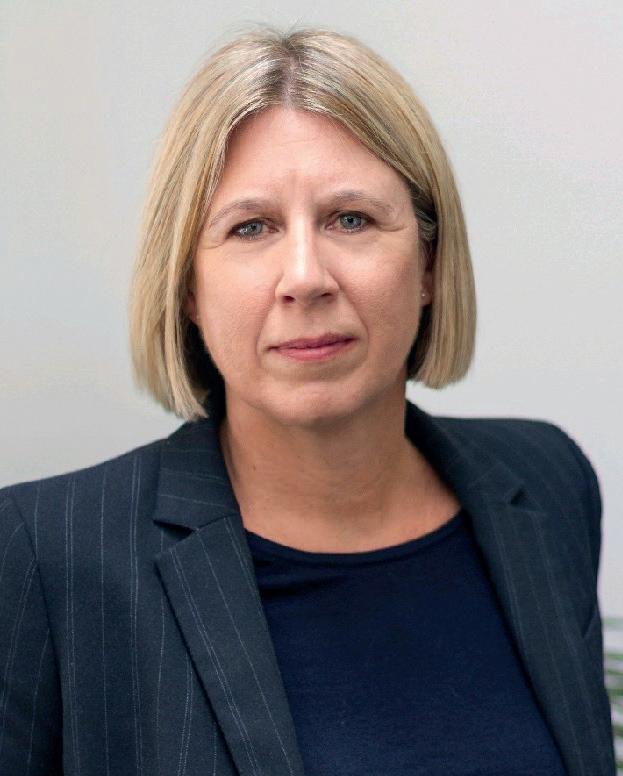
Hinchy is the main point of contact for P2P lenders at the FCA, thanks to her role as manager of retail investment and distribution policy. A 17-year veteran of the City watchdog, Hinchy’s current role requires her to set policies that will protect and benefit retail investors. As the regulator sharpens its focus on consumer protection, Hinchy’s department will become even more consequential for P2P lending platforms. At least until the FCA hires a permanent crowdfunding supervisor.
Mike Bristow, chief executive and co-founder, CrowdProperty


In December 2021, CrowdProperty swung into the black for the first time, in a testament to the steady leadership of chief executive Mike Bristow. At the time of writing, the residential development lender had distributed more than £255m to fund almost £600m-worth of property across the UK. And then there is the Australian branch of the business, which was launched last year and seems to be going from strength to strength. In June 2022, CrowdProperty opened its new mezzanine finance product – CP Capital – to investors for the first time, marking the next stage in the company’s growth.
Narinder Khattoare, chief executive, Kuflink
Khattoare has led Kufink on a remarkable growth journey in recent years, expanding the property lender’s product offering and customer base. Kuflink is now one of the biggest P2P platforms in the UK, with a loanbook in excess of £220m, and zero investor losses reported to date. Not content to rest on its laurels, Kuflink is aiming to take its loanbook to £300m by next year as it scales rapidly with new hires and upcoming product launches, namely second charge secured loans and buy-to-let mortgages. Under Khattoare’s guidance, Kuflink is certainly a platform to watch.

09POWER 50
TOP 10 TOP 10 TOP 10 TOP 10
TOP 10
Stuart Law, chief executive and co-founder, Assetz Capital
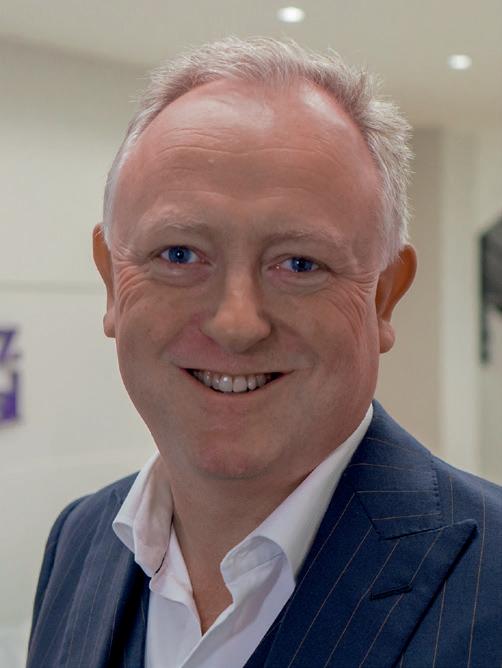
Following the exit of Zopa and Funding Circle, Assetz Capital became the largest P2P lender in the UK, with a loanbook of more than £1.5bn.
Key to the platform’s success is Law, who has been at the helm since Assetz was founded in 2011. Under his watch, Assetz not only survived during the pandemic but thrived, playing a vital role in supporting the nation’s small businesses and housebuilders by participating in the government’s Covid loan schemes. While institutions give Assetz their stamp of approval with funding lines, the platform also remains loyal to its retail roots and manages to provide solid returns for both groups of investors.
Uma Rajah, co-founder and chief executive, CapitalRise

2022 was CapitalRise’s year. The prime property lender passed its £200m lending milestone, expanded its remit to include prime properties beyond central London, and secured a new funding line from “a well-known UK investment manager”. Thanks to Uma Rajah’s strong leadership, the platform even managed to return a whopping £36m to investors during the 12 months ending 31 July 2021, while many other lenders opted to pause lending due to the pandemic. Rajah’s understanding of technology and commitment to strong due diligence have laid the foundations for a unique business which is proving its staying power.
TOP 10
TOP 10
Gwyneth Nurse, director general of financial services, The Treasury Nurse was promoted to director general of financial services at the Treasury at the start of this year, having held a number of roles in the department since joining in 2003. Over her tenure, she has overseen the evolution of the P2P industry and the launch of the Innovative Finance ISA. In her new role, she is responsible for leading the delivery of the Treasury’s work to promote stability, fairness, efficiency and competitiveness in financial services, which includes the P2P sector. She also leads the Treasury’s relationship with the Prudential Regulatory Authority and the Financial Conduct Authority, and represents the Treasury on the Bank of England’s Financial Policy Committee.
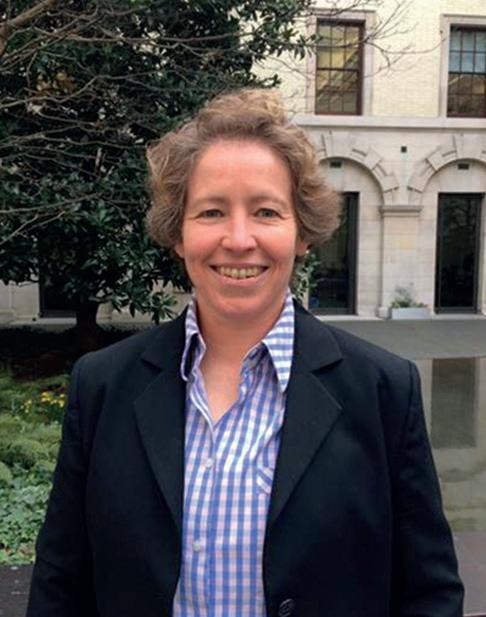
Nikhil Rathi, chief executive, the Financial Conduct Authority
As head of the FCA, Nikhil Rathi holds the fate of P2P in his hands. As well as undertaking a major overhaul of the City regulator, he has introduced a raft of new regulations such as the new Consumer Duty and stricter marketing rules for high-risk investments. He has made consumer protection his top priority, but in a speech made earlier this year he promised that the FCA is not anti-innovation.

TOP 10
10 POWER 50
Jatin Ondhia, chief executive and co-founder, Shojin

Louis Alexander Chief executive, SoMo
Shojin has its sights set on global domination, and with Jatin Ondhia at the helm, anything is possible. The property lender has successfully carved out a niche in mezzanine finance and prides itself on its co-invest model. Over the past year, Shojin has embarked upon a series of funding rounds which have valued the business at upwards of £55m. The property lender has entered into a number of new markets, from the UAE to India, whilst growing its loanbook to £45m and returning more than £4m to investors. Shojin plans to launch a Jersey-incorporated fund later this year as part of its plan to expand its core offerings.
TOP 10
Roy Warren, managing director, Folk2Folk
Roy Warren has been managing director at Folk2Folk since 2019, and oversaw its transition from a rural lender to a UK-wide P2P lending platform which boasts a wide range of expertise, including agricultural lending, property lending and business lending. Warren’s tenure has been defined by consistent annual returns of 6.5 per cent, even during the uncertainty of the pandemic. Over the past year the platform has increased its profits to almost £2m, which Warren has credited to his “excellent” team.

You may remember SoMo as its former brand, The Bridge Crowd. Thanks to Louis Alexander, the property lender has rebranded and positioned itself for growth, making a series of new hires this year and eyeing a lending target of £75m by the end of 2022. In late 2021, SoMo opened its first London office and Alexander hopes to expand into new parts of the UK within the coming year.
Lee Birkett Founder and chief executive, JustUs
Lee Birkett is changing the way P2P lending is viewed. One of the most vocal and innovative figures in the sector, he has spent the past year preparing JustUs’ sister company Moneybrain for a US launch, while continuing to grow the JustUs brand. JustUs recently welcomed the state-owned British Business Bank as a minority stakeholder in the company in a deal that valued the P2P lender at £50m. However, Birkett believes that this figure is “quite conservative” and expects a much higher valuation to follow.
Mansour Bouaziz Co-founder and chief executive, Elfin Market
There has never been a better time to be an alternative credit card provider. As the cost of living rises, Elfin Market’s game-changing credit card continues to offer borrower rates as low as 4.8 per cent, compared with the 26 per cent average for other credit cards. More than £22m has been lent to date, with investors earning returns of between eight and 12 per cent.
David Bradley-Ward Chief executive, ASMX
As chief executive of Ablrate, David BradleyWard is no stranger to the Power 50. But following Ablrate’s closure, it is blockchainbacked secondary market ASMX that is set to receive his expert attention. Since its launch, ASMX has traded more than £16m, demonstrating both its liquidity and popularity.
11POWER 50
TOP 10
Mike Carter
Head of platform lending, 36H Group (Innovate Finance)
As head of platform lending at Innovate Finance’s 36H Group, Mike Carter represents P2P lending at a policy level. In this role, he works with platforms to collate sector-wide data, promote the benefits of P2P lending, and help platforms navigate the increasingly tricky regulatory landscape.
Bruce Davis
Co-founder and managing director, Abundance, and director, the UK Crowdfunding Association
Bruce Davis was a P2P evangelist before most people knew what P2P even was. He helped to found Zopa in 2005, before setting up the ecofriendly crowd bonds platform Abundance. As director of the UK Crowdfunding Association, he is an advocate for P2P lending and crowdfunding at the highest level, and works closely with lawmakers to help shape the future regulation of the sector.
Lukas Diehl
Executive vice president, marketplace banking, Varengold Bank
During the pandemic, Varengold Bank said that it was its marketplace lending partnerships that helped it to thrive. This included investments in UK-based P2P lending platforms such as Assetz Capital. Following
the recent departure of Alison Harwood, Lukas Diehl has become Varengold Bank’s marketplace lending point of contact, and will be responsible for making any new P2P allocations and diversifying into new fintech lending segments.
Neil Faulkner Chief executive and head of research , 4th Way
4th Way has been a reliable source of P2P platform data for more than eight years now, and it is all thanks to the hard work and due diligence of Neil Faulkner. Faulkner is on a mission to educate retail investors and industry stakeholders alike by publishing regular platform reviews and P2P lending data.
Jason Ferrando Chief executive, EasyMoney
Jason Ferrando took over from Andrew de Candole as chief executive of EasyMoney earlier this year, just as the platform passed £200m in lending. He was previously head of lending at the P2P platform, where he worked closely with the platform’s retail and professional investors. As chief executive he hopes to grow the loanbook to £300m by 2023.
Rito Halder Co-founder, Unbolted
Following the exit of Connective Lending, Unbolted is now the only P2P pawnbroking platform on the market. Its staying power is down to Rito Halder’s oversight. Halder insists that all assets are physically held by Unbolted, and this has led to a relatively low default rate and a 100 per cent recovery rate.
Chris Hancock
Founder and chief executive, Crowd2Fund
Chris Hancock led Crowd2Fund through the Covid-19 pandemic, and now he is ready to scale up. Earlier this year, he relaunched the platform’s secondary market with a new name – the small business exchange –and raised its target interest rates to 16 per cent. A modified credit policy and new board structure hints at Hancock’s ambitions to grow the business even further in the months and years ahead.
Janine Hirt
Chief executive, Innovate Finance
As the chief executive of Innovate Finance, Janine Hirt represents the UK’s fintech industry, which includes
12 POWER 50
FIRMS OF INFLUENCE • 36H Group (Innovate Finance) • 36H Group (UKCFA) • 4th Way • British Business Bank • Cambridge Centre of Alternative Finance • Federation of Small Businesses • Innovate Finance • National Association of Commercial Finance Brokers • Open Banking Implementation Entity • The Investing and Saving Alliance • UK Crowdfunding Association • UK Finance • Varengold Bank
P2P lending. Hirt represents the interests of P2P at the highest level, and has been a champion for the sector, calling it “inspiring” and “trailblazing” while working with regulators and lawmakers to help grow the sector.
Nicola Horlick Chief executive, Money & Co
The original City superwoman has proven that she is not afraid of a challenge. During the pandemic, she diversified into different niches including litigation finance, music loans, TV and film rights. Since then, she has applied for a banking licence and openly mulled a move towards managed accounts only, although she remains committed to P2P.
which would “catalyse and drive progress in financial services innovation”. Who better to run this centre than Kalifa himself.
Filip Karadaghi Co-founder and chief executive, LandlordInvest
LandlordInvest saw its profits soar in 2021, and chief executive Filip Karadaghi expects even better things for 2022. The property lending platform recently broke new ground by completing its first senior development loan, as part of Karadaghi’s strategy to move into the specialist bespoke finance space. He has also mooted an expansion into Northern Ireland, Scotland and the Republic of Ireland when the time is right.
Fawzi Kyriakos-Saad
C hief executive, Leap Lending Fawzi Kyriakos-Saad runs consumer lending platform Leap Lending with a commitment to improving financial inclusion and offering fair rates to both borrowers and investors. Since the platform launched in 2019, it has survived the pandemic and is now navigating the cost-of-living crisis with aplomb. Due to high demand for its loans, Leap recently increased its investor rates to eight per cent.
Cormac Leech Chief executive, AxiaFunder

George Huntley Chief executive, The Money Platform
George Huntley (pictured) has been involved with P2P consumer lender The Money Platform since 2016, before becoming chief executive in 2020. He is on a mission to bring affordable credit to the masses, while continuing to deliver annual returns of between 5.5 and 6.3 per cent to retail investors. A longer-term lending product is set to launch in the future, and Huntley has hinted at a forthcoming IFISA launch too.
Ron Kalifa Chair, Centre for Finance, Innovation and Technology (CFIT)
The Kalifa Review was a game-changer for UK fintech, laying out a number of ways in which the UK government could better support innovation in the sector. One of these suggestions was the creation of a new Centre for Finance, Innovation and Technology
Former Liberum analyst Cormac Leech has taken AxiaFunder from strength to strength. The online litigation crowdfunding platform narrowed its losses last year and Leech has predicted that the company will become profitable next year. In the meantime, investors have earned an average internal rate of return of 48 per cent to date, demonstrating the potential of this niche lending sector.
Catherine Lewis La Torre Chief executive, British Business Bank
Catherine Lewis La Torre leaves the British Business Bank (BBB) this year after an eventful two years as chief executive. As the administrator of the governmentbacked lending schemes, the BBB has been a kingmaker of sorts for alternative lenders. The few P2P platforms which were authorised to deliver these schemes saw their loanbook values skyrocket, while their brands became more visible.
13POWER 50
Stuart Lunn
Founder and chief executive, LendingCrowd

Born and based in Scotland, LendingCrowd has shown that you don’t have to be based in London to make it in the competitive world of fintech. Stuart Lunn made sure that LendingCrowd was one of the few alternative lenders chosen to deliver both the coronavirus business interruption loan scheme and the Recovery Loan Scheme. A £100m funding deal with Barclays Bank followed soon after.
Charlotte Marsh Managing director, ArchOver
ArchOver continued to grow its investor base during the Covid-19 crisis, demonstrating the ongoing demand for its business loans. The platform has built up a loanbook worth more than £150m. Since 2019, ArchOver has reported zero annual losses to investors, while delivering interest rates of around 10 per cent.
Rory Mepham
Chief executive, Sancus Lending Group
Rory Mepham took over from Andy Whelan as chief executive of Sancus Lending Group in June 2021, shortly after the property lender rebranded from GLI Finance. Under Mepham’s leadership, Sancus has expanded its team and increased lending volumes by 62 per cent.
Stephen Moss
Managing director, Sourced Capital
Sourced launched in 2017, a brainchild of Stephen Moss. Since its launch, the property lender has written £32.4m of loans and repaid £16.2m of capital, and plans to launch an auto-invest product in the near future. The platform became directly authorised by the FCA this year thanks to the acquisition of Peer Funding, which should further bolster its credentials.
RISING STARS
We have chosen four individuals who we predict will have a growing influence on the P2P lending sector over the coming year.
Fred Bristol, founder and chief executive, Brickowner
Henk Van Hulle, chief executive, OBIE Hassan Daher, founder and chief executive, Qardus
Youness Abidou, founder and chief executive, Nester
Yann Murciano
Founder and chief executive, Blend Network Specialist property lender Blend Network has been on a roll this year, expanding into Northern Ireland, launching an invitation-only property network of developers, and building out its team with a series of new hires and boardroom additions. Yann Murciano has been at the helm of this growth, showcasing his ability to innovate in the competitive property lending sector.
Robert Pasco
Chief executive and co-founder, Plend
A new entry in this year’s Power 50 after being named a Rising Star last year, Plend has arrived with a splash as the innovative new consumer lender on the block. Helmed by Robert Pasco, Plend has earned FCA authorisation, secured £700,000 in pre-seed investment, and earned the prestigious B Corp status, all within its first year of business.
Karteek Patel
Co-founder and chief executive, Crowdstacker
Crowdstacker grew its revenue last year, despite “an uncertain economic climate” and Karteek Patel said that he is considering a fundraise in the fourth quarter of the year to help drive future growth. The P2P lending and crowd bond platform has seen huge demand for its property development loans this year with a “healthy pipeline” of new loans planned for the rest of the year.
Atuksha Poonwassie
Co-founder and managing director, Simple Crowdfunding, and director, the UK Crowdfunding Association
Poonwassie (pictured) steered Simple Crowdfunding
14 POWER 50
through the pandemic before resuming lending earlier this year. As director of the UK Crowdfunding Association, she played a key role in the establishment of the trade body’s 36H Group, which meets once a month to discuss best practices, lobbying activity, horizon scanning, data analysis, and more, with a specific focus on P2P lending.
Daniel Rajkumar
Founder and managing director, Rebuildingsociety
P2P veteran Daniel Rajkumar has led Rebuildingsociety for more than eight years, guiding the business lender through several waves of industry-changing regulations. After a long hiatus, Rebuildingsociety finally reopened to appointed representatives, earlier this year, ramped up its lending activity, and inked an innovative funding deal with Basildon Borough Council. With more council partnerships on the horizon and an ongoing commitment to platform transparency, the platform is continuing to attract new lenders.
Peter Read Director and founder, Assetz Exchange Assetz Exchange began life as an offshoot of Assetz Capital, but it has grown to become its own entity under the stewardship of Peter Read. Assetz Exchange invests in property which has a social impact, while also providing a rental income for investors. It has loaned out more than £18m since its launch in 2020, with investors earning almost £1m in interest payments to date.
Gillian Roche-Saunders Partner, Adempi Associates
Before launching Adempi Associates in 2019, Gillian Roche-Saunders was head of financial regulation consultancy service BWB Compliance. This experience has come in particularly useful over the past year, as she helped a number of P2P platforms navigate a challenging regulatory landscape with minimal disruption.

Nadeem Siam Co-founder and chief executive, Fund Ourselves
The consumer lending space has changed significantly over the past few years, but Fund Ourselves has remained a steady presence, under the direction of co-founder and chief executive Nadeem Siam. The short-term lender continues to target some of the highest returns on the market at 15 per cent.
Paul Sonabend Executive chairman, Relendex
Celebrating its 10th anniversary this year, Relendex is one of the few P2P lending platforms that has turned a profit for the past two years in a row, thanks to the steady hand of chairman Paul Sonabend. Earlier this year, the P2P lender passed its £100m lending milestone with zero investor losses to date.
Louis Schwartz Founder and chief executive, Loanpad
Earlier this year, Loanpad made headlines when it announced plans to gradually increase its lender rates in response to the rising base rate. This is the sort of crowdpleasing instinct that has helped Louis Schwartz to build one of the most popular property platforms, with almost £150m lent out by the time of writing.
Ben Shaw Chief executive, HNW Lending
Founded in 2013, HNW Lending is one of the oldest platforms on this list, and under the watchful eye of Ben Shaw it has gone from strength to strength. Earlier this year the platform announced record profits for 2021 and Shaw is now considering a move into open banking in order to support its underwriting services.
Whitni Thomas, Head of corporate finance, Triodos Bank
Triodos Bank has been quietly offering IFISA-eligible crowd bonds since 2018, with returns ranging from four to seven per cent. According to Whitni Thomas (pictured), choosing projects which have a social impact is of the utmost importance for the platform. She recently helped to relaunch Triodos’ crowdfunding platform with a new design and more user-friendly experience.
15POWER 50
David Turner Co-founder and chief executive, Invest & Fund
At the time of writing, Invest & Fund was just about to reach its £200m lending milestone, in a true testament to the platform’s growth story. Former banker David Turner founded the P2P lender in 2015, and he continues to take the business from strength to strength, with a lucrative Homes England partnership and a record number of new IFISA openings.
Mark Turner
Managing director, London office, Kroll
Mark Turner leads Kroll’s financial services compliance and regulation practice, working with platforms on regulatory issues. His years of experience working with P2P lenders has made him an invaluable commentator on industry trends. Earlier this year, he spoke up in support of the principal/appointed representative model, following an FCA crackdown.
Rob Wilkinson Co-founder and director, Crowd with Us
Rob Wilkinson runs P2P property lending platform Crowd with Us with his co-director Robert Pasternak, but it is Wilkinson’s property investing experience which has driven Crowd with Us’ success. At the time of writing, it had almost 10,000 individual investors, with more than £17m lent to property developers and £5.1m repaid to investors.
Rishi Zaveri
Chief executive and co-founder, Lendwise
Since the end of lockdown, Rishi Zaveri (pictured) has been busy travelling the country visiting universities and meeting students who might benefit from Lendwise’s further education loans. This year, it launched the sector’s first education-backed IFISA which is offering average returns of nine per cent.

PROFESSIONAL
Frank Wessely
Managing director, Quantuma
Quantuma has played a key behind-the-scenes role in the P2P space for several years now, and Frank Wessely (pictured) is the in-house expert. From managing the wind-down of The House Crowd, to advising on restructuring and risk management processes, he is a well-known figure in the P2P sector.

PROPERTY16 POWER 50
SERVICES • BDO • BTG Advisory • Kroll • Fintech Compliance • Hogan Lovells • JustCoded • Legal Alternative • MSB Solicitors • Pinsent Masons • Quantuma • RSM • ShareIn • TLT Solicitors
Route to market
P2P customer acquisition is changing as new regulations loom. Hannah Gannage-Stewart reports

CUSTOMER
ACQUISITION
in any industry is expensive. There are various ways to approach it, and in digitally native industries such as peer-to-peer lending, the internet is an obvious pipeline.
But whether lenders decide to use social media, SEO-optimised Google search or price comparison websites, there is a cost and once a business is at scale, it’s likely to be one of the bigger budget lines.
To determine the value of different approaches to acquisition, businesses divide the lifetime
value (LTV) of the customer, or the average revenue a customer generates across a specific period, by the cost of acquisition (CAC).
This reveals whether the LTV is exceeding the CAC, which certainly once a brand is established, is the name of the game. For this reason, keeping CAC low is a good way for scaling businesses to control costs and make sure each customer is contributing to revenues.
Simple Crowdfunding cofounder Atuksha Poonwassie says social media is a big part of her platform’s brand-building
strategy and a way to educate potential users about P2P.
However, Simple Crowdfunding sees most of its business come via word of mouth or through Google search. Poonwassie credits the relatively frictionless acquisition process, in part, to being an early entrant to the market in 2013. But she acknowledges that her first-mover advantage could lose momentum as the market matures.
Like all P2P lenders, the growing onus on regulation informs Simple Crowdfunding’s approach to acquisition, and customer
17CUSTOMER ACQUISITION
onboarding. “We have to treat them all as restricted for the purpose of what we're doing,” she says. “It's making sure that the messaging that's pushed out is appropriate, that the management and tracking of all of that is consistent.”
Existing marketing regulations are set to get tougher. In August the Financial Conduct Authority (FCA) published Policy Statement 22/10, ‘Strengthening our financial promotion rules for high-risk investments and firms approving financial promotions’ (PS22/10).
The new measures strengthen existing rules around the promotion of high-risk investments. These include strengthening risk warnings, banning inducements to invest, introducing positive frictions – such as the introduction of a 24-hour “cooling off” period –improving client categorisation and stronger appropriateness tests.
The more prominent risk warning rules will take effect from 1 December 2022, while the remaining rules are due to come into force from 1 February 2023.
These regulations may affect platforms who lend to property
Conversely, platforms catering to individual consumers who have a larger retail investor base may find fewer prospects can proceed to join their platforms. For Folk2Folk’s managing director Roy Warren, this can only be seen as a positive
he explains. “I think it'll be the platforms that don't already have the right customer base that will have to adapt their marketing to attract the more appropriate type of customer.”

Indeed, Warren stresses P2P lending is not for everyone, saying that “some people should naturally keep their money in the post office.”
professionals and small- and medium-sized enterprises less than those in the consumer space. Platforms dealing with major assetbacked loans tend to have more sophisticated or high-net-worth investors, who are likely to pass appropriateness tests with relative ease and understand the nature of the risk they’re taking.
move for the sector, building in greater consumer protection, and consequently building trust in P2P more generally.
“Some platforms will already have the right type of customer, whereas for others this further regulatory requirement in the form of the new financial promotions rules will naturally filter them out,”
Does this threaten the democratisation of finance –something that P2P has prided itself on for many years? In Poonwassie’s words, “the beauty of crowdfunding and P2P lending, is it makes investing accessible to everybody who understands what they're getting involved with.”
Warren can imagine a world in which fewer individuals make the grade, but he believes it is necessary. “I don't think anybody could argue that that's a bad thing,” he asserts. “You need to make sure that they understand the risks and I think that
“
The platforms that don't already have the right customer base will have to adapt their marketing”
18 CUSTOMER ACQUISITION
just naturally means some people are in a position to take that risk and some people aren't.”
For Folk2Folk, which specialises in business loans backed by both retail and institutional investors, the new rules will mean enhancing the risk warnings in their marketing and throughout the customer journey, including the customer onboarding process, to ensure consumer understanding of the risks. But it will not require significant changes to the platform’s current marketing approach and is unlikely to alter the demographic of individuals attracted to it.
On the borrower side, Folk2Folk, like many P2P platforms in the business space, uses brokers. The platform says this is more cost-effective than having a large business development team – an alternative method. It finds attracting investors
less straightforward and more competitive, but a strong online presence and thought leadership in that market is part of the mix.
Elsewhere in the market, The Money Platform – a consumer lender focused on short-term credit – finds most of its borrowers through affiliate websites, such as ClearScore or Go Compare.

“The goal, for consumer credit lenders at least, is to try and save on credit bureau costs,” says chief executive George Huntley.
In other words, while customers still need to be independently credit checked by the P2P platform, affiliate referrals make it possible to limit those checks to individuals that you’re fairly confident will pass.
The affiliates charge on either a cost-per-click basis, when you pay for each person who clicks through to you, or they work on a costper-approved or cost-per-funded loan basis, which is when you pay them if they end up lending to that particular individual.
“It tends to be the case that better customers come from price comparison websites, they're people who are interested in finding the lowest interest rate that they can get,” Huntley says. “Whereas people who are not interested in getting the best price are more likely to be lower quality, or more likely to be flagged for fraud risk.”
For Huntley, while retention is desirable after forking out for acquisition, he is clear that The Money Platform does not want borrowers using the site as a revolving credit facility. “We're trying to build up financial resilience and help customers not to be reliant on this type of credit,” he says. This has a reputational advantage, and Huntley says one borrower recently returned as an investor.
For another P2P consumer lender Elfin Market, which has a product akin to a credit card, social media has been the main route to acquisition.
The lender has an in-house marketing and development team, which generate all the content and track the return on investment, which co-founder Lakshithe Wagalath says is one of the main reasons he likes social media.
“We essentially acquire customers via digital advertisements,” Wagalath explains. “And among all the possible types, the ones that have been working well for us are social media ads.” Facebook and Instagram tend to work best, although he says the firm has used LinkedIn and Google too.
“We are not yet listed on comparison websites,” he adds. “This is something we might consider at a later stage. For us it was much cheaper to acquire people via social media ads, and comparison websites were much more expensive. So, it didn’t really make any economic sense for us.”
This is an example of where the LTV/CAC ratio is driving acquisition strategy. Once Elfin has greater brand awareness in the market and the potential to onboard more, higher-value customers, investing greater sums in acquisition may be worth it.
As the FCA’s new promotions roll out, there is a possibility that some target users are filtered out. Alternatively, we may see a drive to simplify products and educate more consumers on both the value and the risks associated with P2P. Ultimately, the more consumers are able to make genuinely informed choices, the less the new regulations will bite.
19CUSTOMER ACQUISITION
Green evolution
Relendex’s Paul Sonabend talks to Marc Shoffman about the property platform’s longevity in a changing market and its ambitious green targets
MUCHHAS CHANGED in the peer-to-peer lending market over the past decade and one of the platforms that has successfully navigated the changes is Relendex. The platform marks 10 years in the business this year.
Its executive chair Paul Sonabend outlines its ongoing commitment to retail investors and the eco-focused role he sees the property lender playing in the future.

Marc Shoffman (MS): How has Relendex navigated the past 10 years while others have left the sector?
Paul Sonabend (PS): We are 10 years old, and it’s been eight years since we became Financial Conduct Authority (FCA) and HMRC authorised.
It is ultimately the quality of the management and of our business model that is paramount.
There are two reasons competitors have exited.
Some have become bigger and turned into banks and some, irrespective of how good platforms were, didn’t have good business models.
The regulators are more interested in how your paperwork goes and compliance for things they see as important than the viability of companies’ business models which they are not competent to assess.
Entering into the P2P market historically were companies who outgrew or didn’t have a good business model.
Some of these would have failed under any structure.
We lend on housing development, which is a very specialist area and has an enormous amount of complexity.
The proper evaluation of a building project takes a vast amount of experience and due diligence. It is not suitable for new entrants from outside the industry as they simply don’t understand the complexities involved.
MS: How has regulation affected your retail offering?
PS: December 2019 gated most retail investors and the poorer P2P firms were told they could no longer take retail funds, which left a dilemma. Relendex, along with other players, had to re-examine ourselves.
We understood we would still be heavily invested in the concept of P2P, fractionalising loans. We believe in it because it spreads risk and provides an open platform so people can see what they are investing in. The platform remains committed to P2P while others have left.
At the same time, we understood
20 PROFILE
post-December 2019 that the people we onboard would be high-networth individuals and sophisticated investors together with the base of investors we had pre-2019.
Our balance by value is about 60 per cent institutional and 40 per cent retail. The vast majority of our investors are retail but by value most are institutional.
If you don’t understand what Relendex does and don’t understand risk involved in lending to property developers then you shouldn’t be on our platform.
I am in favour of anything that happens to improve the quality of people in our industry. I do, however, wish the FCA would spend more time getting rid of the crooks and rogues who aren’t regulated.
MS: How are you reaching new investors?
PS: You can’t grow your retail base by competing for funds in the digital marketplace, that is physically impossible. For example, I can’t during an ISA period go out and compete for investors as my cost per eligible lead is many times greater than for an FSCS-regulated product, as we have to turn away so many non-sophisticated applicants.
Now we are in a situation that virtually 100 per cent of our new investors come from personal recommendations from investors who have been satisfied with our service and performance. Word of mouth is everything. To achieve that you need a solid reputation. Once achieved, new investors arrive. This is what we are increasingly seeing.
Currently there is no pressure to acquire new investors as our existing investors are hungry for more loans to finance. In the current economic climate, the demand for quality investments far
outstrips supply, the money is there and people are desperate to find a return but it has to be something they like and that feels solid.
I get far more unhappy emails from people who aren’t able to invest rather than any emails related to the performance of their investments.
MS: What is the focus of your projects?
PS: We are working with bespoke housebuilders who want to build in a sustainable manner. If they can’t do it themselves, we have partnerships who can do it.
We are using modern methods of finance for modern methods of construction. In 2021, 30 per cent of the money we lent went into developments that were sustainable from cradle to grave.
To qualify as a “green” loan, every part of the building process has to be seen to be sustainable. We are working with the most innovative housebuilders who are building the most wonderful housing stock that costs little or nothing to light and heat.
Our goal is for 60 per cent of new loans to be for sustainable development by the end of 2023 and we want the market to know that we are not scared of financing innovative, sustainable buildings using new techniques. We see ourselves as part of a much larger eco-environment in an industry that has not always been green.
There are a lot of institutions who want to deploy ESG funds but are scared of greenwashing.
It should appeal to large numbers of retail investors who are sophisticated enough to qualify to be our lenders.
Our appeal is for institutions who understand they have a bigger pur pose in life than just getting a return.
Whilst our emphasis is on sustainable housebuilders, we will continue to finance other projects. All new development is going to be vastly better than the leaky homes most people live in. However, we are practical and know it is hard in some areas to build eco homes.
MS: What impact will rising interest rates have on Relendex?
PS: I have never understood this argument. Before 2008, long-term interest rates were three per cent or more. We have got used to low interest rates that have penalised savers and are out of kilter with the long-term trend.
We produce a loss-adjusted annual outcomes report to the same manner as fund managers and are consistently producing annual returns of seven to 7.5 per cent. This year it looks like it will be no different.
If you are a saver and were earning just 0.2 per cent and now can earn two per cent but Relendex is returning seven per cent, the gap remains large.
MS: Will the cost-of-living crisis reduce investor demand?
PS: When interest rates are virtually zero, you don’t have to do anything to protect your wealth. At that point you can even invest in things that don’t pay interest. When inflation comes back everybody says, ‘How do I protect my wealth?’
The demand for products that produce a return at times of inflation is greater, not less. Inflation pushes people to want to save. Relendex is an obvious candidate –where else can you put your money at the moment, especially with stock markets so shaky, and bond and alternative markets such as crypto falling substantially?
21PROFILE
INVESTMENT PLATFORMS
Assetz Exchange is a property investment platform delivering long term stable income for investors, primarily through the purchase and leasing of housing for social good. Regulated by the FCA, it provides the opportunity for investors to create a diversified property portfolio and alternative funding options for the housing sector.


www.assetzexchange.co.uk
T: 03330 119830
E: info@assetzexchange.co.uk
Folk2Folk is a profitable UK lending and investment platform. More than half a billion pounds has been invested via the platform with no investor losses to date. Loans are a maximum of five years, secured against land/property at a maximum 60 per cent LTV, with a fixed rate of typically 6.5 per cent, per annum. www.folk2folk.com
T: 01566 773296
E: enquiries@folk2folk.com
Invest & Fund is an established alternative finance platform that has deployed over £190m on clients' behalf and has repaid over £115m to lenders with zero per cent bad debts written off. Lenders can achieve a diversified, asset-backed portfolio with gross yields averaging from 6.75 per cent per annum with an option to lend through an ISA or a SIPP for tax-free returns.
www.investandfund.com
T: 01424 717564
E: lending@investandfund.com
JustUs is an innovative peer-to-peer lender that provides a range of consumer and property-backed loans. It has lent out more than £20m and paid more than £1.4m in interest to lenders to date. Investors can enjoy returns of up to 10.69 per cent, with all products eligible to be held in an Innovative Finance ISA for tax-free earnings.
www.justus.co
T: 01625 750034
E: support@justus.co

Kuflink is an award-winning lender and online investment platform. With over £220m invested through the platform, investors can customise their own portfolio investing in specific loans or in a pool of loans diversified across a number of opportunities. Earn up to 7.44 per cent (compounded) per annum, with an IFISA available.
www.kuflink.com
T: 01474 33 44 88
E: hello@kuflink.com

Lendwise is the UK’s only peer-to-peer lender that is dedicated to impact investing in education finance. Investors finance education for borrowers at universities and business schools across the UK and globally. Investors define their own risk appetite and use Lendwise’s AutoLend feature to diversify their strategy across a pool of loans, which can be invested in an IFISA wrapper earning average returns of up to nine per cent per annum.
www.lendwise.com
T: 0203 890 7270
E: lenders@lendwise.com
22 DIRECTORY
The European Crowdfunding Network (EuroCrowd) is an independent, professional business network promoting adequate transparency, regulation and governance in digital finance while offering a combined voice in policy discussion and public opinion building. It executes initiatives aimed at innovating, representing, promoting and protecting the European crowdfunding industry. www.eurocrowd.org E: info@eurocrowd.org
Q2 creates simple, smart, end-to-end lending experiences that make you an indispensable partner on your customers' financial journeys. Its modular platform gives you the ability to manage lending simply throughout the entire loan lifecycle, from application, onboarding, servicing to collections. The result is a better experience for both borrowers and lenders. 020 3823 2300 info@Q2.com
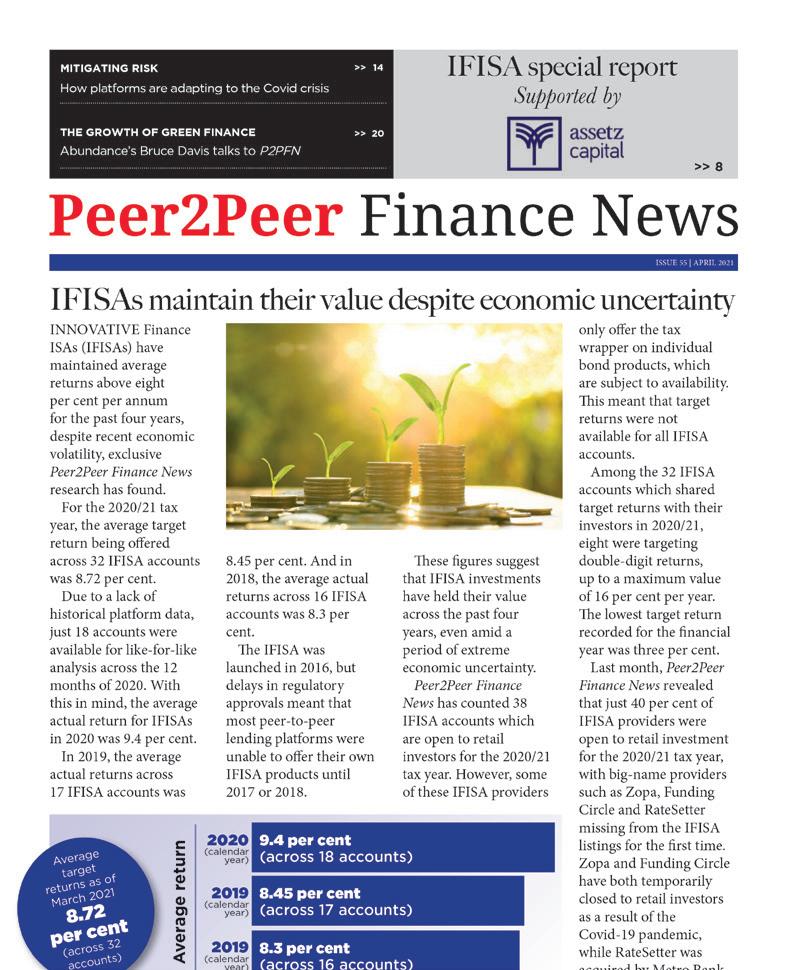
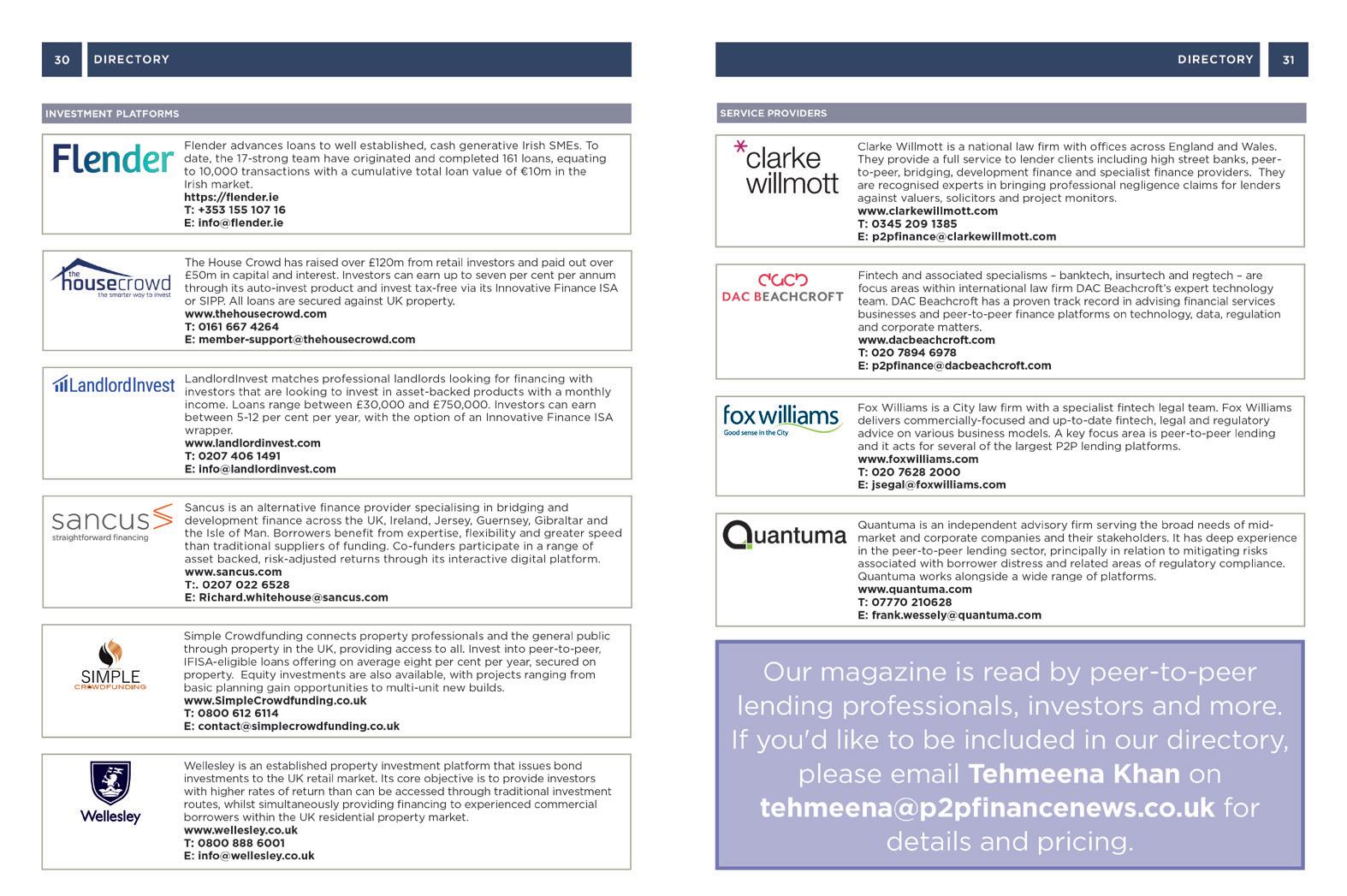

Our magazine is read by peer-to-peer lending professionals, investors and more. If you'd like to be included in our directory, please email Tehmeena Khan on tehmeena@p2pfinancenews.co.uk for details and pricing. 23DIRECTORY SERVICE PROVIDERS AND INDUSTRY ORGANISATIONS
https://eu.q2.com T:
E:


27 markets, 1 licence and 1 network. The making of history. We have been working hard to harmonise capital market rules for tradeable securities and loan based crowdfunding… WWW.EUROCROWD.ORG - INSPIRING TOMORROW‘S FINANCEOur members are prepared. Are you? Join us!
